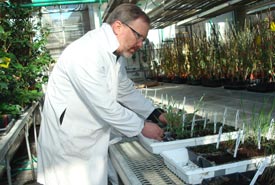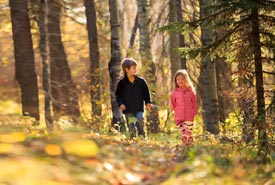Conversations

Dr. Lee Foote
I, like many nature-oriented people, had an epiphany when I had children. I began to see the future differently, to remember the flow of experiences of discovery into which children slip in and out.
Educating kids about nature is a rich investment; they instinctively connect and buy in. Nature builds their neurological networks in unique ways. Adults also benefit from the same encounters and education. Many of us will walk weeks without stepping off a man-made surface. It impacts people in ways they don’t realize.
Pervasive urbanized viewpoints lead to apathy and insufficient appreciation due to lack of connection, influencing how we work with nature. Hubris, techno-arrogance, smugness and domination: none of these have worked particularly well in the long term without being tempered by circumspection, selflessness, appreciation and a love for nature.
As humans, we drift toward the arrogant, selfish and egocentric unless we can be drawn out of our self-absorption and engage. We all do better when we have a physical connection to nature.
Conservation areas offer the opportunity for connectivity by matchmaking people and spaces. It would be a serious step backward to lose them. Using these spaces feeds human appreciation of the gift of nature. People seek to protect places they connect with.

Children walking in the woods, Bunchberry Meadows Conservation Area, AB (Photo by Kyle Marquardt)
I am optimistic that the influence of the day, our youth, will get the message out if they have a connection to nature. Education and experience outside human/urban confines will feed that connection. Messages about the value of wild spaces, responsible stewardship and sustainable uses will be heard if we appreciate nature.
Humans and nature swirl together separate yet innately connected in an intense affiliation. As a scientist I want to discover and understand everything on our planet. As a humanist, I love the process of discovery, too. Being in nature makes me a better scientist.
Nature is not linear. I am fascinated by the unanswerable questions it provokes. I love the mystery of it. There is a spiritual aspect to nature. It feeds my soul—everyone’s soul. I never want to lose that connection. Nature forces our humility; it puts us in our place. We rely on it more than it on us. And that is thrilling, truly thrilling.
Republished with permission from Conservation Magazine.
Dr. Lee Foote is the director of the Devonian Botanical Garden. The Devonian Botanical Garden abuts Nature Conservancy of Canada's (NCC's) Bunchberry Meadows Conservation Area.


